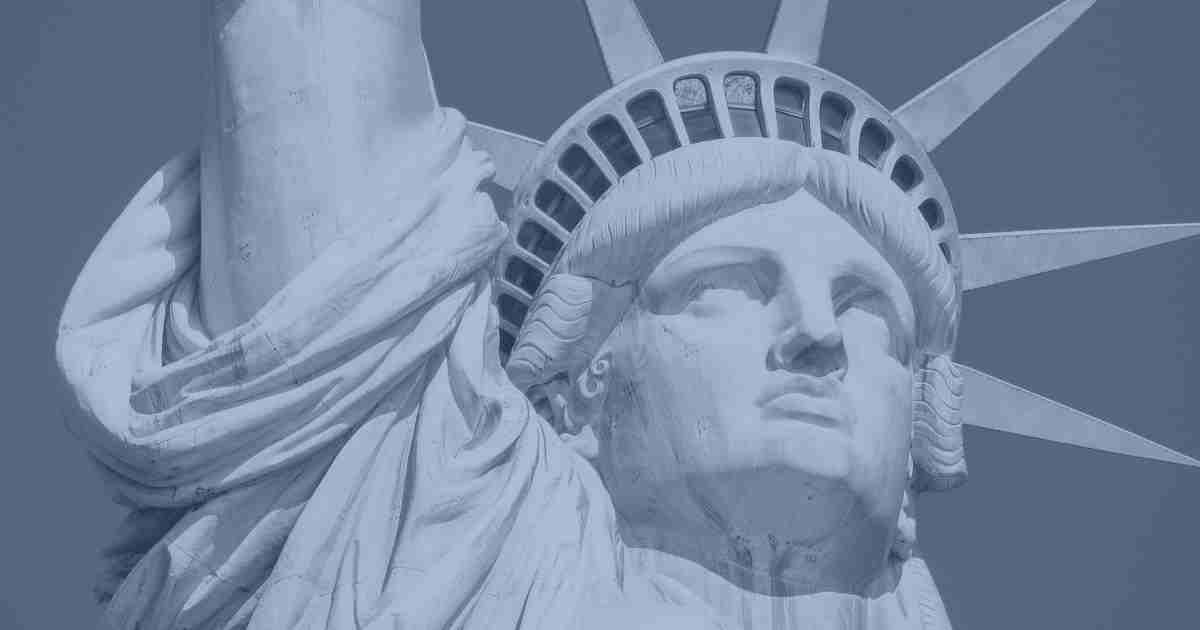President Trump baldly asserted this week that he can issue an executive order ending birthright citizenship for children born in the U.S. to undocumented parents. My initial reaction was frustration. How can the President claim–with no explanation–the power to act in a way that appears contrary to the plain words of the U.S. Constitution? Is this a serious proposal that just sounds like a flippant remark, or is it merely a cynical political ploy to rally his base before the midterm elections?
In any case, maybe this can be used as a teaching moment about the meaning of the “rule of law.” The 14th Amendment to the U.S. Constitution states that
All persons born or naturalized in the United States, and subject to the jurisdiction thereof, are citizens of the United States and of the State wherein they reside.
This Amendment was ratified in 1868 in the wake of the Civil War. The war had been sparked in part by a tragically wrong Supreme Court decision, Dred Scott v. Sandford, which held that persons of African descent born in the U.S.–whether free or slaves–were not citizens. The Amendment was meant to overturn Dred Scott.
In particular, the Amendment was made to constitutionalize the existing common law on citizenship. The common law conferred citizenship on all persons born within the territory of the U.S., whether children of citizens or aliens. Exceptions were recognized for children of foreign diplomats and hostile occupying forces because the United States exercised no jurisdiction over them. Hence, the phrase “subject to the jurisdiction thereof” was intended to refer to those specific exceptions.
To be “subject to the jurisdiction” of the U.S. is simply to be subject to the authority of the U.S. government. The federal government clearly has jurisdiction over U.S. born children of undocumented immigrants. For example, the federal government would not hesitate to charge an undocumented immigrant with a crime if they disobey U.S. law.
As consistently recognized by courts, presidential administrations, and scholars for over a century, children born in the U.S. to foreign nationals possess birthright citizenship.
Most notably, the Supreme Court in 1898 in the case of United States v. Wong Kim Ark, ruled that a child born in San Francisco to Chinese parents was a U.S. citizen and therefore could not be barred from returning to the U.S. after a trip abroad:
The fourteenth amendment affirms the ancient and fundamental rule of citizenship by birth within the territory, in the allegiance and under the protection of the country, including all children here born of resident aliens, with the exceptions or qualifications (as old as the rule itself) of children of foreign sovereigns or their ministers, or born on foreign public ships, or of enemies within and during a hostile occupation of part of our territory, and with the single additional exception of children of members of the Indian tribes owing direct allegiance to their several tribes. The amendment, in clear words and in manifest intent, includes the children born within the territory of the United States, of all other persons, of whatever race or color, domiciled within the United States. Every citizen or subject of another country, while domiciled here, is within the allegiance and the protection, and consequently subject to the jurisdiction, of the United States.
The Supreme Court’s decision in Wong Kim Ark did not specifically discuss the citizenship status of children of unauthorized immigrants. Nor could it have. There were not restrictions on immigration until 1875. But in 1982, in Plyler v. Doe, the court ruled that undocumented children were entitled to free public education. The court relied on another part of the 14th Amendment, its equal protection clause, and it interpreted language similar to that in the citizenship clause. The Plyler court noted that “no plausible distinction with respect to Fourteenth Amendment ‘jurisdiction’ can be drawn between resident aliens whose entry into the United States was lawful, and resident aliens whose entry was unlawful.”
President Trump styles himself as a conservative supporter of the strict constructionist or originalist view of constitutional interpretation. It is hypocrisy for him to ignore the plain meaning of the 14th Amendment in order to issue the proposed executive order. Since birthright citizenship is the law of the Constitution, it cannot be changed through executive order or even legislation, but only through amending the Constitution.
Finally, if one day we do debate amending the Constitution to change the 14th Amendment as a way to combat unauthorized immigration, consider what we could lose. Because of birthright citizenship, in America each person is born equal. Nobody is born into a low caste, and nobody with exalted status. All who have the fortune to be born in this land inherit the right to its freedoms and protections. Must we sacrifice this American value as the price of combatting unauthorized immigration?


Leave a Reply